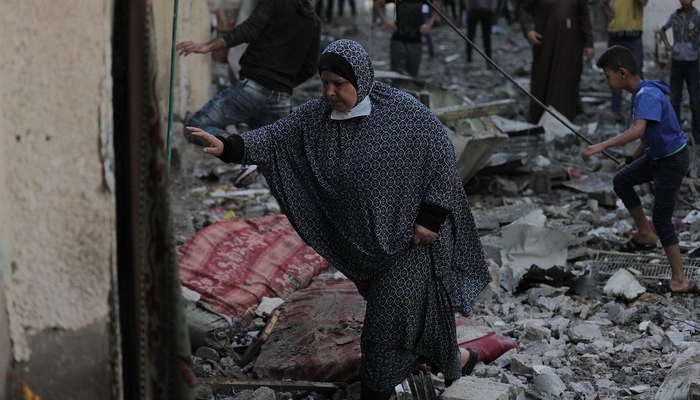Northern Gaza faces “apocalyptic” conditions, as per a warning issued on Friday by 15 United Nations leaders. A letter, signed by key officials from UN organizations including OCHA, the UN’s humanitarian agency, UNHCR, and the World Health Organization (WHO), highlighted the imminent risk of death from disease, famine, and violence for the entire Palestinian population in the area. The UN leaders urged Israel to “cease its assault on Gaza and on the humanitarians trying to help.”
Dire Living Conditions
The situation in northern Gaza has deteriorated since the Israeli military began its siege nearly a month ago. Hundreds of civilians have been killed, and critical facilities such as hospitals and schools housing displaced families have been hit in the conflict. Basic resources like food are now extremely scarce, as livestock have died, crops have been destroyed, and agrifood infrastructure has been severely damaged.
UN’s Appeal to Israel
The UN leaders urged Israel to “cease its assault on Gaza and on the humanitarians trying to help.” They noted that Gaza has been deprived of essential aid and life-saving supplies, while bombardments continue. The letter also emphasized the importance of upholding international humanitarian law, urging all parties to follow the principles of distinction, proportionality, and precaution in conflict. The UN reiterated that these obligations are binding regardless of violations by either side.
Read: Bill Clinton Faces Backlash Over Comments on Israel-Palestine Conflict
Polio Vaccination Campaign Set to Resume
Despite the challenges, WHO announced that it will resume its polio vaccination campaign in northern Gaza, which was suspended due to Israeli attacks. The campaign, aimed at immunizing thousands of children, was halted on October 23 after Israeli forces targeted a school designated for vaccination. WHO confirmed it has received necessary assurances to restart, though the area covered will be smaller and the operation limited to specific humanitarian pauses.
Impact on Children’s Health
WHO reported that recent military activity in key northern towns, including Jabalya, Beit Lahia, and Beit Hanoun, has restricted access to vaccination for about 15,000 children. To improve coverage, additional staff have been recruited, and humanitarian pauses extended by two hours to reach more displaced individuals. According to COGAT, the Israeli body managing aid flow, polio vaccinations will run from Saturday to Monday in coordination with international organizations and the Israel Defense Forces.
Rising Regional Tensions
Meanwhile, concerns over a potential regional escalation continue. A former Israeli intelligence official suggested that Iranian-backed militia groups in Iraq may soon retaliate against Israel. Miri Eisen, a former Israeli military intelligence officer, noted that Iraq’s proximity to Iran and the readiness of these militias make them a strategic option for a response. Eisen added that Iraq’s militias could provide Iran a way to retaliate without direct involvement.
US Efforts to Ease Middle Eastern Tensions
Amid these rising tensions, senior US officials Amos Hochstein and Brett McGurk held talks in Israel on Thursday, aiming to address issues in Gaza, Lebanon, and Iran. Their discussions with Israeli leaders focused on securing a ceasefire in Lebanon, enabling civilians to return home safely, and addressing the release of hostages held by Hamas. Secretary of State Antony Blinken reported “good progress” on implementing UN Security Council Resolution 1701 for Lebanon, though additional work remains.
Follow Day News on Google News, Instagram, YouTube, Facebook, Whats App, and TikTok for latest updates
